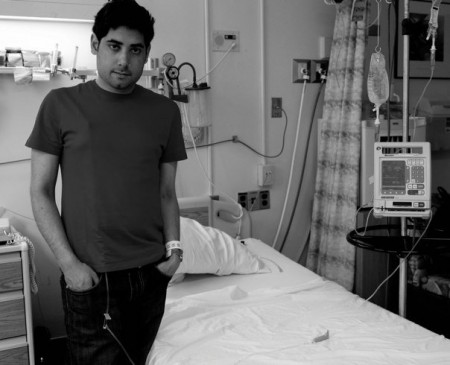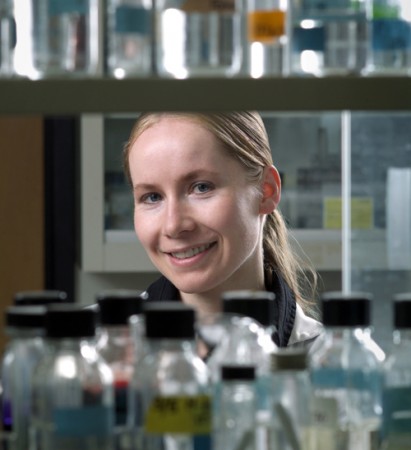
Jehangir Saleh used his philosophy studies at U of G to help him understand and cope with cystic fibrosis (CF), a disease that took his life in 2013. Although he was unable to complete his master’s degree due to his illness, his writing lives on, giving hope to those with CF and other chronic diseases.
He often compared life with CF to mopping a floor that always gets dirty again. His treatment, which kept him in St. Michael’s Hospital in Toronto for up to six months at a time, involved several hours of drug therapy per day to help clear his lungs of mucous, only to be repeated the next day as his lungs filled up with mucous again.
“This aspect of CF life was emotionally difficult for me,” he wrote on his blog, Philosophy of Illness. “For someone who spent his life being an overachiever, who felt like, with enough hard work, I could make things go my way, here was one thing that, no matter what I did, I couldn’t control.”
Jehangir’s younger sister, Jasmine, remembers him as a mentor who helped her put her life in perspective. She says a 10-minute conversation with him made an impression on her friends, who often told her, “Your brother really left me thinking about my life.”
There’s hope for CF patients in the form of research that could lead to more effective treatments – and possibly a cure. Pathobiology professor Sarah Wootton has received almost $300,000 in funding from Cystic Fibrosis Canada to study gene therapy that aims to replace the defective gene that causes CF with a functional one.
Cystic fibrosis is caused by the dysfunction of a single gene, the cystic fibrosis transmembrane conductance regulator (CFTR); 90 per cent of CF patients have a single mutation that causes the CFTR protein to malfunction.

“What we do in our lab is modify viruses to use as gene therapy vectors,” says Wootton. “We are engineering baculovirus vectors to permanently correct the CFTR gene, and we’re doing this using state-of-the-art site-specific genome editing techniques.”
She is studying the use of baculovirus found in insects to express the functional gene in the lung cells of CF patients. One of the benefits of using baculovirus is that its genome is large enough to carry the functional gene along with “designer nucleases” that ensure the gene integrates into specific regions of the human chromosome. “There are very few viruses that can accommodate that much additional genetic information into their genomes,” she says.
Another benefit is that the virus cannot replicate in human cells and can’t be transmitted to other people.
The next step is determining how the virus performs at different stages of the disease. She predicts the virus would be more effective in young children before their lungs become severely damaged by CF.
“I think approaches such as this are going to cure single-gene defects one day,” she says. “We think our approach is particularly effective because of the size of the viral genome and the amount of information we can encode in the genome to help facilitate this process.”
Wootton says this research wouldn’t be possible without funding from Cystic Fibrosis Canada, especially since manipulating and growing large quantities of the virus requires specialized lab equipment.
The potential to save lives with this research is “extremely motivating,” she says. “I am in awe of the positivity of people afflicted with this disease. My first-hand interactions with CF patients has really opened my eyes to the enormous impact this disease has on their lives and their loved ones.”